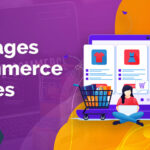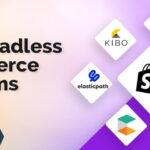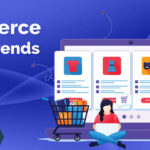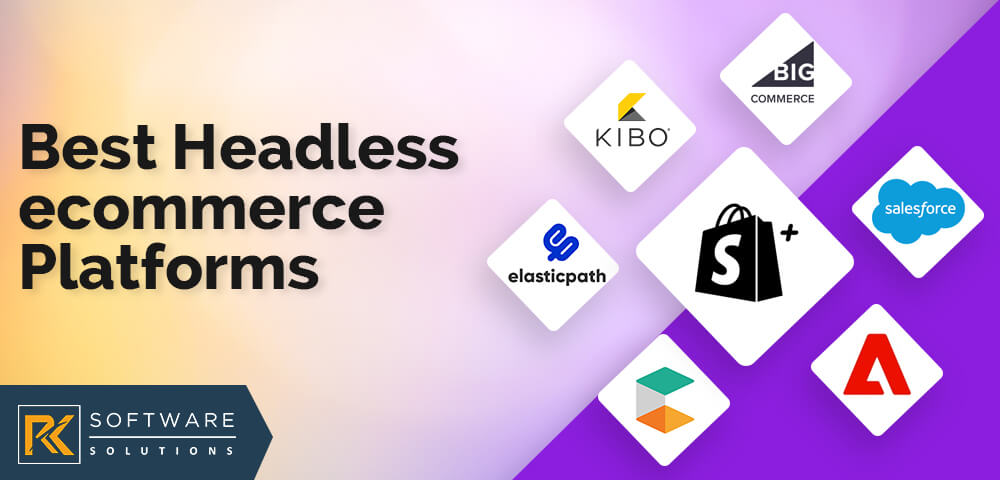
July 27, 2024
Best Headless eCommerce Platforms
In the eCommerce world, to be competitive, you should use an adaptive platform and be able to make changes from the customer side of your eCommerce store without bothering the backend process, which has carts, shipping, taxes, etc. Similarly, you should be able to make changes in the back end without interrupting the front end. This is where headless platforms come into act. This article will discuss the best headless eCommerce platforms and things to consider while choosing them.
What Is a Headless eCommerce Platform?
The platforms in which the front end, which means the customer-facing part, and the back end, which has all the technical elements, shipping system, order processing, etc., are separated. It offers an easy solution for businesses who want to bring notable changes to their store. While using a headless eCommerce system, you’ll find meeting your brand’s needs far easier. When the front and back ends of a store are joined together, you can work around the present frontend design on different devices and platforms. However, companies of all sizes can use native headless commerce platforms designed specifically to be headless and deliver customizable experiences on any device with the help of eCommerce APIs.
How Does Headless eCommerce Help?
The front end (mobile, web, smartwatch, etc.) receives the distributed assets through API, considerably speeding up the process by requiring only the assets needed to render the front end.
Headless eCommerce is a good choice if you:
- Have a marketing strategy with strong and reliable content.
- Want the ability to execute personalization?
- They have global selling requirements or are multi-site, serving multiple frontends powered by one common backend.
- Have multiple customer touchpoints and devices, and you want to create uninterrupted digital experiences.
- Are you using a CMS where you have invested and want to add eCommerce abilities?
- If you offer a service with different websites and want to merge both.
Things to Consider in Headless eCommerce Platform
Headless eCommerce platforms have become more popular among businesses looking for customization and flexibility. Choosing the right one can be challenging, as many options are available in the market. Here are some things to consider while choosing a headless eCommerce platform.
API-First Approach
The API-first approach is important in headless eCommerce because it helps businesses to create scalable and flexible eCommerce systems that can easily integrate with other systems.
The API-first approach offers various benefits:
- Allows businesses to measure their eCommerce systems by adding new API endpoints or increasing server ability.
- APIs can be personalized to meet unique business needs.
- APIs can easily integrate with other services and systems.
Integration Capabilities
Integration is a component of headless eCommerce that provides customers and businesses with a seamless and effective experience. It allows the backend to process orders and manage inventories accurately. At the same time, the frontend user experience is improved by ensuring that APIs are working effectively and properly. Due to the interaction between the front and backend, all parties involved will have a better overall experience.
Additionally, Headless CMS enables integration with several analytics and reporting tools, including Mixpanel and Google Analytics. Businesses may watch website traffic, observe client behavior, and analyze sales data to make data-driven decisions.
Content Modeling Capabilities
Content modeling means determining the organization and structure of the content, including product descriptions, images, and videos. The content model ensures consistent content and makes it easier for users to navigate and find what they need.
By investing in content modeling, design, and approval, businesses can create a consistent user experience across devices and channels. This leads to increased customer engagement, better SEO, more conversions, and improved customer loyalty.
Integration of Payment Gateway
Choose a platform that can integrate various payment gateways because payment gateways play a key role in eCommerce platforms to ensure seamless and secure payments between the customer and the store. Payment gateways also provide many features that can benefit eCommerce businesses, such as fraud detection and prevention, support for multiple payment methods, recurring payments, and currency conversion.
Structure of Workflow Enhancements
Headless workflow enhancements structure is crucial in creating a store as it improves several eCommerce workflows’ speed, efficiency, and accuracy. Workflow enhancements can help you organize and automate these workflows, reducing the workforce required and minimizing errors and delays.
Customer Support
Customer Support can be in various forms like phone, email, chat, and self-service knowledge. While choosing a headless eCommerce platform, choose a provider who offers 24/7 support delivering smooth eCommerce operations. Technical issues can happen anytime, and you want it completed on time. So, support is essential for headless eCommerce to provide a seamless customer experience.
Security
When choosing headless eCommerce platforms, ensuring they give you high-security measures to preserve and protect financial transactions and customer data is important. Strong security measures are crucial to maintain the customers’ trust and ensure your eCommerce operations are safe from cyber-attacks.
Cost
Pricing is an important factor to consider when choosing a headless eCommerce platform. The cost of these platforms significantly varies, and to achieve your profit goals, finding a solution that meets your budget is important. Carefully compare the pricing of different platform providers and choose the one that gives you the best value.
Best Headless Ecommerce Platforms
1. Shopify Plus
Shopify is a commerce platform suitable for small and medium-sized businesses which is cloud-based. Another version offering headless commerce and high-growth enterprise customers is Shopify Plus. It allows you to modify any device into a sales channel and offers unlimited extensibility and many integrations.
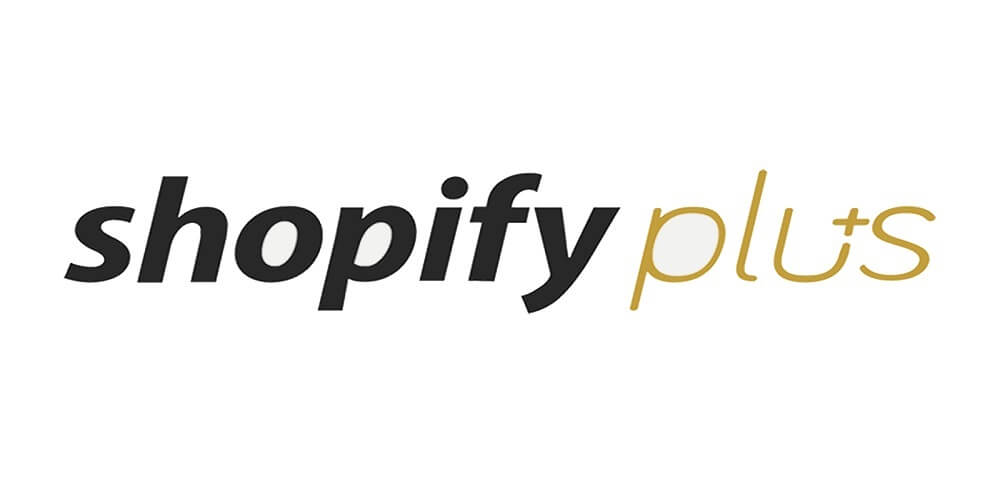
Depending on the target audience, developers can integrate third-party tools and change the frontend work whenever required. Growing brands can find Shopify plus expensive than traditional Shopify.
2. BigCommerce
BigCommerce provides flexibility to build and grow stores online. It is a SaaS-based headless eCommerce platform that can use any front end to provide content-rich experiences. It offers enterprise-grade functionality and is easy to use, which can be customized depending on the business requirements.

BigCommerce includes flexible APIs and Multi storefront options, which help the company to operate a business in multiple regions or open multiple brands. Sometimes bigcommerce can be challenging to integrate the necessary tools.
3. Salesforce Commerce Cloud
The Salesforce product line includes Salesforce Commerce Cloud. On top of Salesforce CRM, it offers an agile commerce platform, making integration with other products in the suite effortlessly. To enhance customers’ shopping experiences, you can adopt API-first commerce with Salesforce Commerce.
Additionally, eCommerce retailers can use the library of prebuilt integrations in Salesforce to improve their websites and even create mobile applications. While Salesforce Commerce Cloud is excellent for connecting a powerful suite, it can be difficult to integrate technologies outside the suite and maintain a lightweight tech stack that enables eCommerce companies to be flexible and adaptable.
4. Adobe Commerce (Magento)
The Adobe product line includes Adobe Commerce, formerly known as Magento. You may create multi-channel commerce experiences for any business using the platform. The Adobe Suite’s Analytics, Experience Manager, and Creative Cloud have native connectors with Adobe Commerce, which offers a strong platform for developing personalized shopping experiences.

Adobe Commerce is a fully scalable and flexible platform that enables you to include the latest technologies in your online store, even if they still need to be created. The high total cost of ownership of using a suite eCommerce system is a significant disadvantage of this platform.
5. Commercetools
Commercetools is the Leading eCommerce platform and was created by implementing MACH principles. The API-first, headless, cloud-native, microservice-based technology enables eCommerce retailers to customize user experiences to their needs.
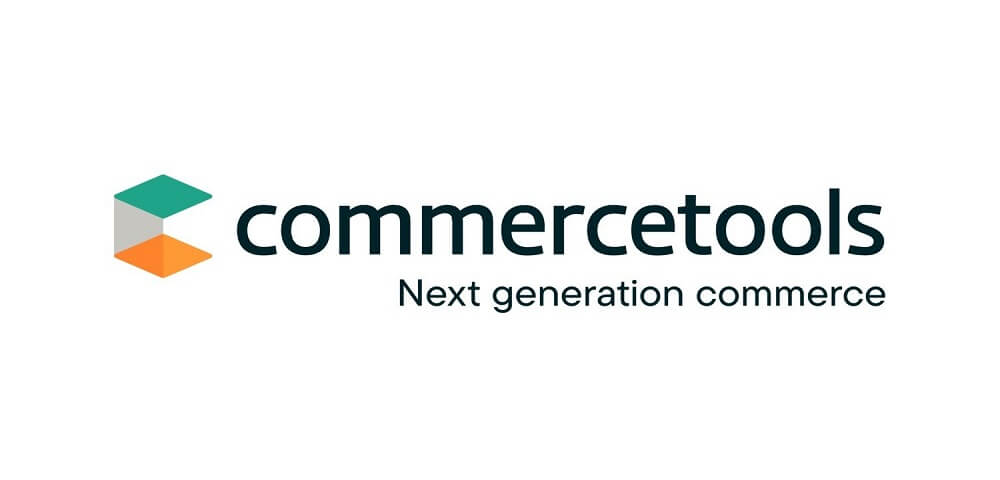
By utilizing MACH architecture, embracing a best-of-breed approach, and composable commerce, Commercetools aims to set itself apart from legacy suites. While Commercetools promotes headless commerce, the company does it in a way that may be challenging for certain eCommerce shops to understand because, to utilize the platform, additional tools, and features must be fully built and integrated.
6. Elastic Path
Elastic Path is an API-first headless commerce solution that helps companies to deliver digital commerce experiences in multiple markets and touchpoints. Elastic Path supports omnichannel commerce, which combines shopping journeys across any touchpoint.
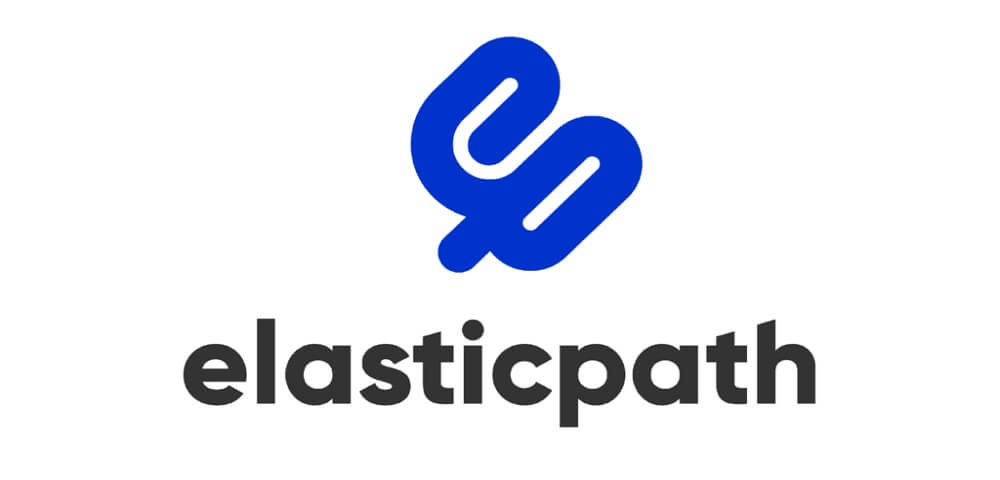
By leveraging APIs, the platform also connects to ERP systems, including other tools within the commerce tech stack, and many merchandising and search tools are present. As a headless commerce solution, it offers various benefits but lacks user-friendliness.
7. Kibo Commerce
Kibo Commerce is a cloud-based eCommerce platform that helps you to launch customized commerce experiences on top of a modular and future-proof architecture. Kibo Commerce’s API-first and microservices-based architecture lines up with modern headless commerce platforms, which helps businesses meet customer requirements while staying active.
Kibo also has additional solutions in a suite of products, including Order Management and Point of Sale, which are flexible and support various personalizations for any business. While Kibo still requires good developer support and customization
Conclusion
It is important to generate good quality content and embrace headless commerce platforms to be competitive and improve the customers’ digital experience. Regardless of the business, a headless commerce solution can deliver the business requirements. By utilizing these services, businesses can develop and customize the store’s frontend and backend to meet the customers’ changing expectations and demands. Our professionals at RK Software Solutions in Westchester, NY, help to take your eCommerce business to the next level. Contact us for an initial consultation.



